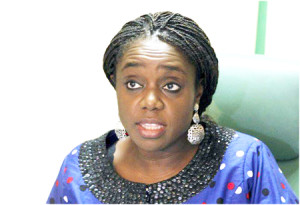
The federal government plans to raise the value-added tax (VAT) on luxury times — subject to the approval of the national assembly.
Briefing the media after the federal executive council meeting on Wednesday, finance minister Kemi Adeosun said the cabinet, presided over by Vice-President Yemi Osinbajo, has approved the revised national tax policy to address low taxation in the country.
Nigerians currently pay 5% VAT, one of the lowest in the world, introduced in 1994 by the military government.
According to Adeosun, “What the (review) committee report has shown is that we should look at actually increasing VAT on some luxury items. At 5% we have lowest VAT.
“And while we don’t think VAT should be increased on basic items, if you are going to drink champagne, for instance… in the UK you drink champagne the VAT is 20%, so why should it be 5% in Nigeria?
“So they have made recommendations that we should pull out some luxury items and increase VAT on those items immediately. And I think that is a very valid and sensible suggestion which we are going to take to the national assembly to see how we can implement it.
“But as far as basic goods are concerned, no there will be no tax increase. I believe it is only fair that when you consume luxury goods you should pay a little bit more. The National Assembly will decide the percentage.”
The UK case is slightly different from Nigeria – its 20% VAT is imposed on all the affected goods and services and is completely different from luxury tax.
The new national tax policy, a revised version of the 2012 edition, will capture all existing taxes.
The new policy, as proposed by the ministry of finance, seeks to entrench an efficient tax system and address the low tax-to-GDP ratio, which at 6% is one of the lowest in the world.
In November 2014, Ngozi Okonjo-Iweala, then finance minister, announced that private jets, yachts, champagne and a host of other the luxury goods would be specially taxed.